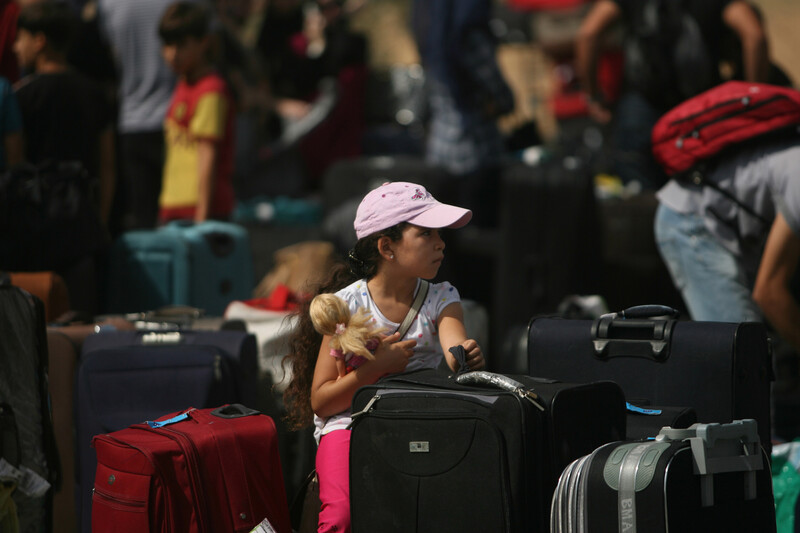The Electronic Intifada Amman 15 July 2013

Thousands of Palestinians residing in Gaza are stranded as a result of Egypt’s restrictions.
APA images“Come again next week,” said the man sitting behind a desk piled with paperwork. This was my fifth time hearing these words, from an official in booth number nine at the Egyptian embassy in Amman.
I asked if there was any hope of an opening for the hundreds of Palestinians from Gaza stranded in Jordan, but he said he could not promise anything. On an earlier visit, the day after the Egyptian army’s 3 July ouster of President Muhammad Morsi, the same employee told me that the delay in issuing visas was due to the “civil disobedience” that accompanied the 30 June mass protests in Egypt. He said that processing would speed up in coming days, but it never did.
For more than a week since the military takeover, the Rafah crossing between Egypt and Gaza has been closed, except for brief periods. Palestinians, even with valid visas for Egypt, have been deported from Cairo airport.
Egypt has also instructed airlines to refuse to allow such Palestinians to board Cairo-bound flights. The instructions were confirmed to me twice from both Egyptian and Palestinian airline offices.
A relative of mine from Turkey was told that Egypt would fine Turkish Airlines €5,000 ($6,500) for every Palestinian brought to Cairo in defiance of the ban. And a friend of his, he told me, arrived in Cairo and was deported back to Cyprus, but was lucky enough to be given a courtesy ticket.
Stuck
The result of all this is that thousands of Palestinians are stranded abroad, unable to return to Gaza, and many are running out of money. Almost a thousand pilgrims from Gaza are stuck in Jeddah, Saudi Arabia.
Dozens more were stuck in Cairo airport’s deportation room — they were unlucky enough to have arrived before the ban on Palestinian passengers boarding flights for Cairo, but after the Rafah crossing was closed, and so they were locked up. Other Palestinians have been tweeting about their ordeal being held in the deportation room at Kuala Lumpur in Malaysia.
Security concerns are the stated reason reported by the Egyptian media for these restrictions, but the Palestinians held up all over the world know a different story.
They are students, patients, intellectuals and workers who have no interest in residing in Egypt, and whose only wish is to return home, or visit their loved ones back in Gaza, and to spend Ramadan with them.
My own story illustrates some of the obstacles facing Palestinians trying to get home. As a medical student, I traveled to Amman, Jordan for a one-month long clinical course. I missed my homeward flight to Cairo, which was booked for 7 July, and I have also exceeded my planned expenses.
But the bigger problem remains the absence of a clear vision or even hope in the near future of when or how to get back to Gaza.
Stalling
Figuring out how to get home is not easy and is influenced by many factors: the Jordanian permit to stay which is about to end; the state of Rafah crossing, which is managed on a daily basis with an unclear policy; the ban on Palestinians in the Egyptian airports; and the stalling and delays that hinder Palestinians from obtaining visas at Egyptian embassies.
After a few days of complete closure, Rafah crossing was opened for limited hours, but with the ban in airports still active, it is mainly those stuck in Egypt who benefit, in addition to a few hundred medical patients and foreign passport holders.
The combination of airport bans and visa delays makes for another problem: visas are valid for only two weeks. Those with valid visas will soon have to apply for new ones. Even if embassies start issuing them again, the paperwork takes two weeks on average to complete, which could lead to a whole new episode of waiting.
As thousands of others face similar dilemmas, thousands of days and dollars are lost while officials take their time trying to solve the problem.
Or maybe they are not trying to solve it. Who knows! After all, the media are too busy with what’s going on in Cairo and other capitals to shed light on this unnecessary suffering.
Belal Dabour is a medical student from Gaza, Palestine. He blogs at belalmd.wordpress.com.





